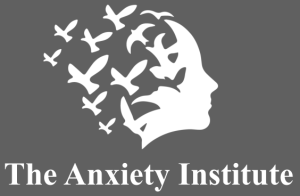Depression
Depression stands as a prevalent mental health challenge, affecting a significant portion of the population, with statistics indicating that up to one in four women and one in six men will encounter depression at some point in their lives. This condition spans a spectrum of severity, ranging from mild episodes to profoundly debilitating states, making it a critical issue that demands attention and understanding.
The Nature and Symptoms of Depression
Characterized by a pervasive sense of despondency and despair, depression often manifests through a variety of emotional, physical, and cognitive symptoms that intertwine to cast a shadow over an individual’s daily existence. The hallmark signs include a persistent low mood and a stark lack of interest or pleasure in activities once enjoyed, persisting nearly every day for a minimum of two weeks. However, the journey into major depressive episodes might be heralded by prolonged periods of subdued mood and diminished vitality.
Emotionally, individuals grappling with depression frequently experience an overwhelming sense of sadness and hopelessness, often accompanied by an inclination towards tearfulness and deep contemplation. Feelings of worthlessness and excessive guilt are not uncommon, adding to the emotional burden. This emotional turmoil can be further compounded by heightened irritability, a reduced tolerance for frustration, and an escalation in anxiety levels.
The physical manifestations of depression are equally challenging, encompassing a range of somatic complaints such as persistent headaches, muscle or joint discomfort, and a general sense of physical malaise. Individuals may also battle with feelings of agitation, restlessness, or conversely, a debilitating lethargy and fatigue that impedes daily functioning.
The Impact of Depression on Daily Life
Depression’s reach extends into the social and relational spheres, often leading to a withdrawal from social engagements and a noticeable decline in the quality of family and intimate relationships. Sufferers may find themselves retreating from the social world, further isolating themselves in their struggle.
Cognitive impairments, such as a diminished ability to concentrate or make decisions, are also prevalent, alongside significant changes in appetite and sleep patterns. These alterations can result in notable weight fluctuations and disrupt the natural sleep cycle, contributing to the overall distress.
In its most severe form, depression can evoke thoughts of self-harm or suicide, underscoring the critical need for timely and effective intervention.
Navigating Through Depression
Understanding depression is the first step towards addressing this complex condition. It is imperative to recognize the multifaceted nature of depression, encompassing emotional, physical, and cognitive domains, to foster empathy and support for those affected. By shedding light on the symptoms and impacts of depression, we can pave the way for more compassionate and comprehensive care, ultimately guiding individuals towards a path of recovery and resilience.
In conclusion, depression is a multifaceted condition that poses significant challenges across various aspects of life. Recognizing the signs and symptoms of depression is crucial for early intervention and support, offering hope and pathways to those navigating this difficult journey.

